A Conversation with Content Engineer Malik Girondin
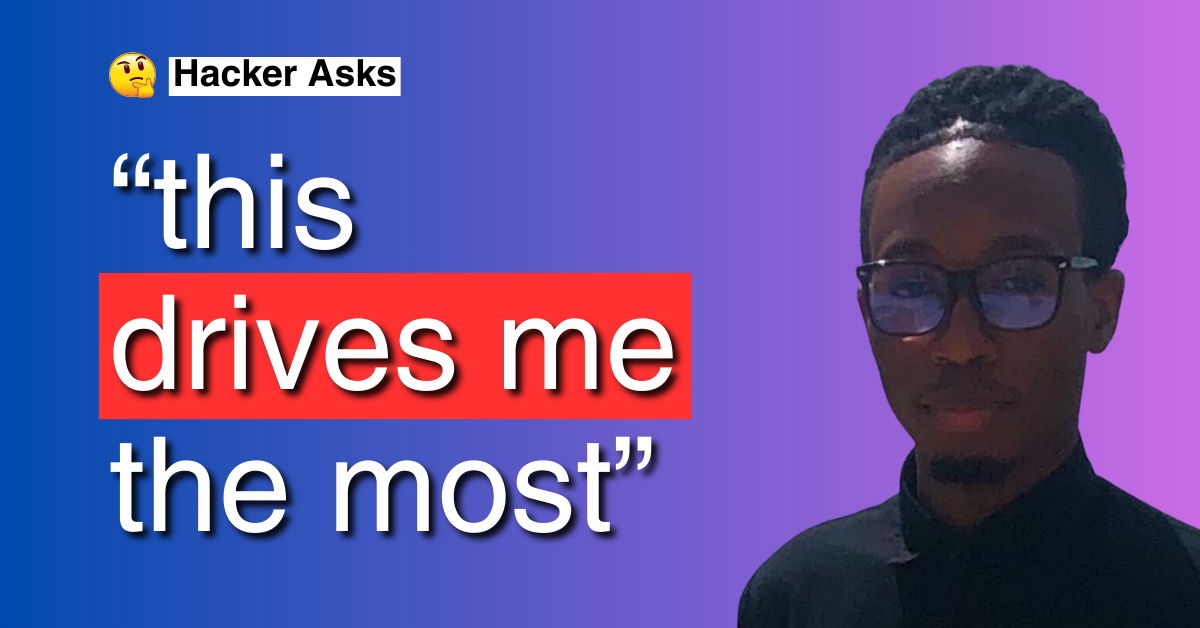
Hi! Can you introduce yourself and describe your current role?
Hey, my name is Malik Girondin! I currently work as a Defensive Content Engineer at Security Blue Team. This role consists of creating content (e.g. certifications, labs), upskilling, researching, and teaching students. For a more detailed day-to-day insight, check out this article I wrote: Day in The Life of A Content Engineer.
What’s your backstory and how did you first get into cybersecurity?
My journey began as a cashier at a grocery store, where I honed my customer service skills and attention to detail. Driven by the Colonial Pipeline cyber attack in May 2021, my focus switched from healthcare to cybersecurity.
You can learn more about that with my interview with Day Cyberwox here and with Greg Greenlee here. In this interview, I want to offer new information not previously told.
You’re an active contributor to the cybersecurity community and consistently share engaging content. What drives your passion for this?
Back in 2022, I consumed a multitude of free content—content about cybersecurity. From the student's perspective, this is a huge plus! From the creator's perspective, this not only makes them visible as a thought leader but helps build their brand simultaneously helping others.
This drives me the most. But check this out, have you ever heard of the P.I.E. Theory? In my blog regarding it, I talk about the benefits of EXPOSURE. You will be surprised how many opportunities arise from getting your name out there.
I do want to talk about one community that I like the best (not that I am a moderator or anything). The community is the Security Blue Team Discord. Shout out to all the Community Heroes reading this!
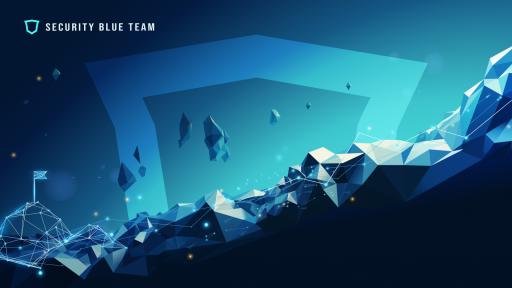
Circling back to your question, I am also driven by the different people I meet. Having the pleasure of speaking to professionals across the world, I have learned much about life and career tips.
Recently, at DEFCON 32, I linked up with a few members from our Discord for a casual chat. This would not have been possible if I had not been an active contributor to the cybersecurity community and EXPOSED myself. You can find the complete vlog here.
What advice would you offer to someone aiming to become a content engineer or course creator?
This is a good question!
First, I do have a course that covers this: Blue Team Content Engineer: The Complete Career Guide, but I have since evolved from making that course a year ago—not saying the content is bad. I have experienced much knowledge which I will be sharing with you below:
- Understand your audience: At Security Blue Team, we focus on defensive content; we have a defensive audience. Would it make sense to start introducing the hacking concept of exploiting vulnerabilities in a computer system? No. Knowing this, tailor your content right to avoid confusion.
- Hearken to feedback: I have the pleasure of making lessons for students. Once these lessons were aired on their respective platforms, I would observe the feedback from students. I make it a habit to implement necessary feedback and learn from my mistakes.
- Learn from the best: Anybody can make a course. With the lists of LLMs, what is stopping someone from spitting out some robotic course? The thing is this: is the course good or bad, and whom am I learning it from? This is where you can differentiate yourself from the competition.
I launched Introduction to Python earlier this year. This is an entry-level course that teaches beginners how to write basic code in Python.
“But wait, you are not a Python developer, why should we learn from you?”
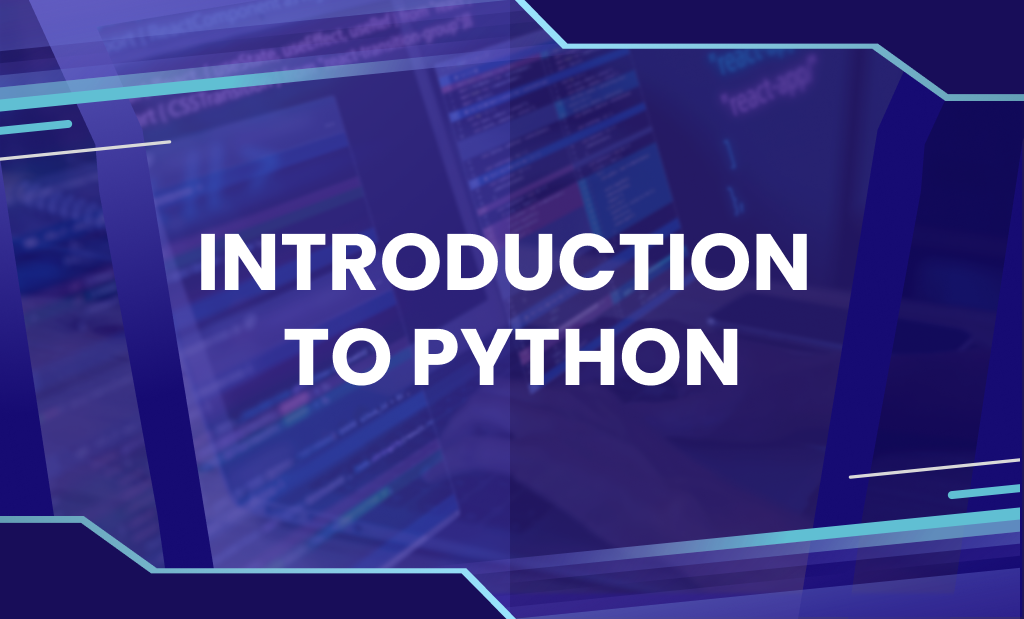
Let’s look back at my advice again: Understand your audience. I made this course originally for my classmates in my Python class back in college. “Huh, why not utilize the course material, the hell!?”
Well, here comes the second tip: Hearken to feedback. The course material was not loved by students. This was prevalent on Reddit, the internal course chat, and Discord. I, too, had issues with it which led me to external resources I used to pass the class. I found it strange, like many students, so I decided to make a course that would have benefited me during the class. The launch went extremely well with many students using it to supplement the learning material.
This leaves us with the final advice: Learn from the best. So this all came from a student (myself) who passed the class with flying colors, and the course was high quality. In cases like this, it makes sense as it is needed. This won’t in all cases.
Can you share your creative process at all? How do you design a curriculum/lesson plan?
For the lessons and courses, it is quite simple. I look up an existing course, model its syllabus, then I put my spin on it. Don’t act shocked, everyone does it.
For the cybersecurity labs, I have a little bit more fun. Let’s talk about my two most popular labs: BTLO - Sukana and BTLO - Anakus.
My thoughts are vivid, and I am always pondering. When it comes to the Story/Scenario, that is the first thing I work on. For example, Sukana is based on a young man who lost his father, causing him to get into cybersecurity to find the killer. His mother then moves him to Australia to be safe. He becomes drug dependent and they are struggling to afford the rent. This leads him to look for work and increase his income, should he pass this technical interview; he will earn more income to afford stronger medication, afford rent, and do other things.
For Anakus, it takes place years later. His sister tries to get into cybersecurity, so her brother (who eventually got the job, spoilers!) gives her a referral. Now, she must pass this technical OA to gain employment.
DISCLAIMER: NONE OF THESE STORIES ARE REAL. I received many comments telling me to stop “putting people’s” business out there. These stories are not based on one person. If it happens to correlate with you, then it is what it is. As mentioned before, my thoughts are vivid. In my course, I talk about consuming a large medium of content to expand your thoughts. These stories are a combination of many things. If you want to experience a crazy story, check out my lab BTLO - Cipher on Blue Teams Labs Online. It is rated as one of my best story-based labs, and very underrated.
Let’s jump to another aspect of the design portion for these labs. One tool that I utilize for this is Notion. Welcome to the Playground!
In the playground, we have fun! Make yourself at home, please. Let’s move to one example of how I structure a lab, with Cipher as our example (you should really try that lab):
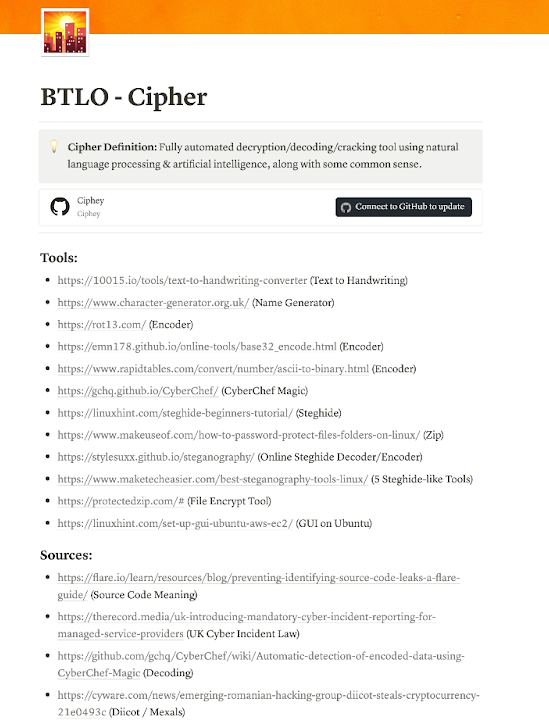
The page consists of possible tools I want to implement in the lab, sources for inspiration, and files (kind of like version control for me). Let’s take a look at one of my favorite pages: feedback. On this page, I add all the feedback post-launch to see how the audience likes it. Learning from it would make me the best. Ha, I am having fun playing with this advice.
What tools do you use to create cybersecurity content?
Tools, tools, tools! The best tool I have used thus far is the Arc Browser. I fell in love with this ever since I saw a YouTube video on it. It has a sleek design, does not consume much CPU, and allows me to split the screen like this:
The second tool would be the Parallels Toolbox. Now, this is not free, sadly. It helps me with recording audio, managing storage space, and other stuff.
As mentioned previously, Notion is the go-to for writing blogs, lessons, or planning. Once these are done, I import them to our proprietary tools at Security Blue Team. Other than that, I am pretty tool-agnostic. I will utilize anything to get the job done. But the ones listed above are great for productivity boosts!
Lastly, you need the infrastructure to generate logs, and data, or stimulate attacks. For this, I use our cloud infrastructure at Security Blue Team and/or my Windows 10 PC with VMWARE.
One last thing that helps is DO NOT DISTURB. Yes, it is not a tool per se but what an amazing feature. I have this turned on for all devices (obviously family can bypass this).
As Dr. Cal Newport mentioned, deep work can help you become successful in this distracted world. As the young kids say nowadays, you just need to lock in and get stuff done.
How do you stay current with the latest trends and developments in cybersecurity?
Back in my 2022 interview, I mentioned a curated list of new sources. To be frank, I don’t use them anymore. I monitor places like r/Cybersecurity, The Dysruption Hub, Mental Outlaw’s YouTube channel, and Google News. If I find something interesting there, I do further research.
At Security Blue Team, we do have an RSS feed that allows us to stay current with news from multiple websites. Aside from that, co-workers are a great resource as well. We have weekly meetings, and within them, members might introduce something cool they saw on LinkedIn or showcase an exciting project they’re working on. All of this keeps us in the loop when it comes to information.
Outside of work, what hobbies or interests help you unwind and maintain a healthy work-life balance?
I don’t believe in WLB… just kidding! Now, that is something I need to work on seriously. I can get lost in the grind sometimes and just focus on getting better to secure my future. But nevermind that, let’s get into one hobby!
Reading: I like to learn from the best. Why not pick up a $10 book, gain some insights, meditate on the words, and try to implement them in your life? Reading also goes into articles online as well. My main category is self-development. Here is my current collection:
Another hobby I just picked up again is gaming. I am more of a single-player, story-first, JRPG type of guy. I like using strategies to defeat my enemies (in-game).
I guess the third one is a hobby if it is paid for? Joking, but sometimes I like to travel with family, my team, or by myself. Here are some pictures from the last 15 months. I visited the following places: Guadeloupe, New York, Boston, Portugal, London, and Las Vegas.
Yep, that is pretty much it—that I am willing to share (insert evil laugh). I look forward to implementing more hobbies in the future. If I can give any words of wisdom, spend some time with family/friends.
Speaking of family, I had the pleasure to graduate with my aunt two weeks ago in Fort Worth, Texas. This was very emotional for her. It is moments like this you treasure.
Do you think certifications are essential for advancing in a career?
Ah, the certifications. I totally agree that these are necessary for advancing your career. Heck, the Blue Team Level 1 changed my whole career aspects in 2022. If you are looking for SOC roles, this will help you a lot when it comes to training. Take a look at the ISC2 Cybersecurity Workforce Study: out of 13,103 cybersecurity professionals, 51% of them got a cybersecurity certification before getting into the field. I think certifications are a great way to stand out and spice up your CV. Heck, I decorated my wall with some of my favorites:
Now, as I tell everyone: there are many factors when it comes to getting a job. If you want to hear more about certifications, check out my blog So You Want to Get Into Cybersecurity. I believe you can increase your odds by having the following: Experience + Certifications + Education.
Yeah, yeah, you will hear of stories where someone got in with one of the three, but those are outliers. The market is harder than when I got into it back in 2022. My blog Ebb and Flow: Navigating the Ups and Downs of the IT/Cybersecurity Job Market talks about the true reasons, which many won’t cover, on the layoffs and the lack of jobs—speaking of America.
Please, make sure your soft skills are on point! You will be surprised how being likable and clear can propel you in your career. Network, build bonds with others, provide value back into the market. Ask yourself questions like “are my skills in demand?” and “can I solve problems?”.
My story consists of three years of hard work—and I am not done. What I have showcased in this interview are the highlights. You are seeing the events, but you are not seeing the processes that lead to it. It’s hard work, believe me. But I am choosing to sacrifice now for my future self.
Lastly, where can people connect with you or follow your work online?
Yep, you can connect with me on LinkedIn, subscribe to my on YouTube, shoot me an email, and/or follow my work on my portfolio site. Thank you!

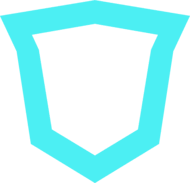
Member discussion